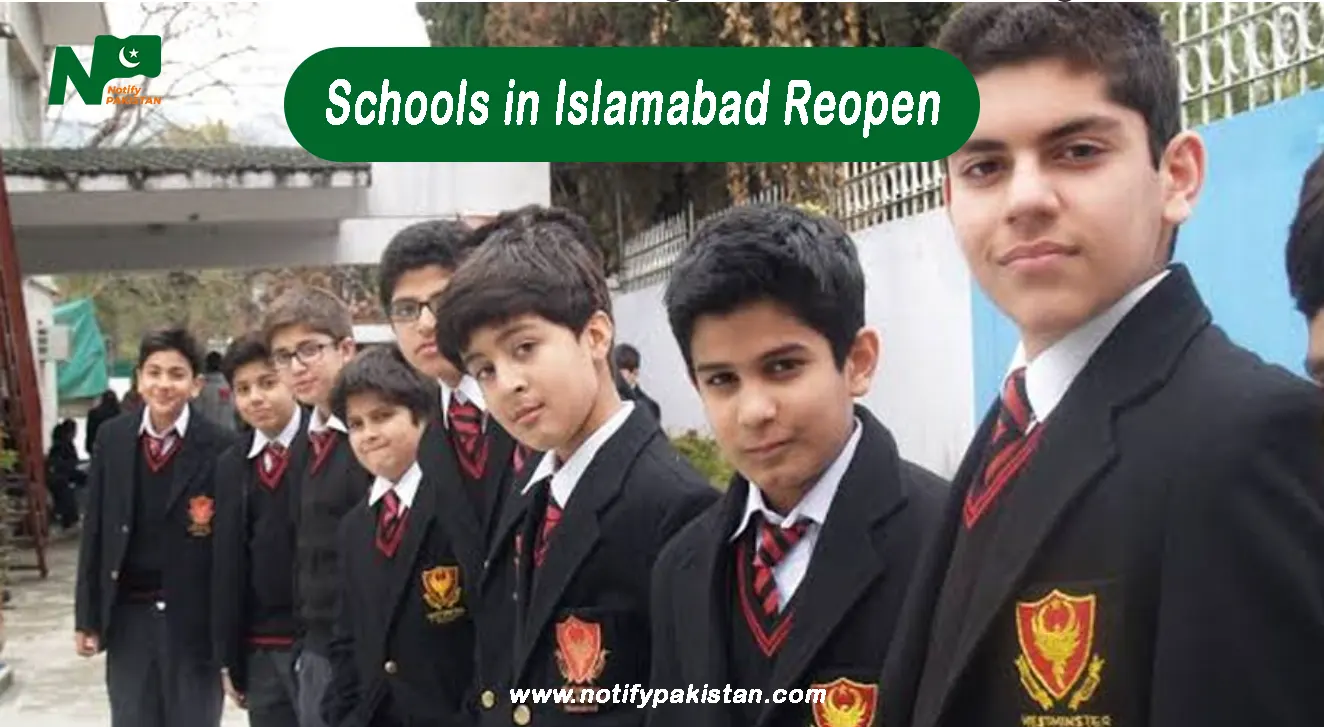The capital city of Islamabad’s schools reopened on Monday with modified winter schedules following a three-week break. But with thick fog, smog, and chilly weather persisting, Punjab’s authorities are still unsure about when to reopen schools, thus uncertainty remains.
When a phoney notification appeared on Sunday, indicating that Islamabad’s winter break would be extended until January 16, confusion ensued. The Islamabad Capital Territory’s Ministry of Federal Education and Professional Training stated that the material was untrue and confirmed that all schools would resume on January 8.
Winter Break Extension in Islamabad: Because of severe weather, the city’s winter break, which was originally slated to run from December 24 to January 31, was postponed until January 7. On Monday, educational establishments under the Federal Directorate of Education resumed, with winter hours of 8:30 am to 2:00 pm.
Punjab, meanwhile, is still undecided on whether to reopen its schools. The administration is being urged by the public to contemplate another extension of the winter break, which was previously extended until January 9. Parents are requesting more holidays in order to protect their children from weather-related illnesses due to worries about heavy fog and an extreme cold spell.
Mohsin Naqvi, the acting chief minister of Punjab, made it clear that no decision has been made about additional extensions. If the education department makes recommendations for extra holidays, the government is willing to take them into consideration. Chief Minister Naqvi voiced alarm over the deteriorating pollution conditions, noting that the worst-off towns for poor air quality were Lahore and other cities.
Schools in Islamabad have reopened, but things are still unclear in Punjab, where residents are pleading for longer winter breaks. The Punjabi government is keeping an eye on the weather and, if the education department makes recommendations, may consider adding further holidays. The region’s continuing problems with smog and cold weather continue to influence educational choices.

